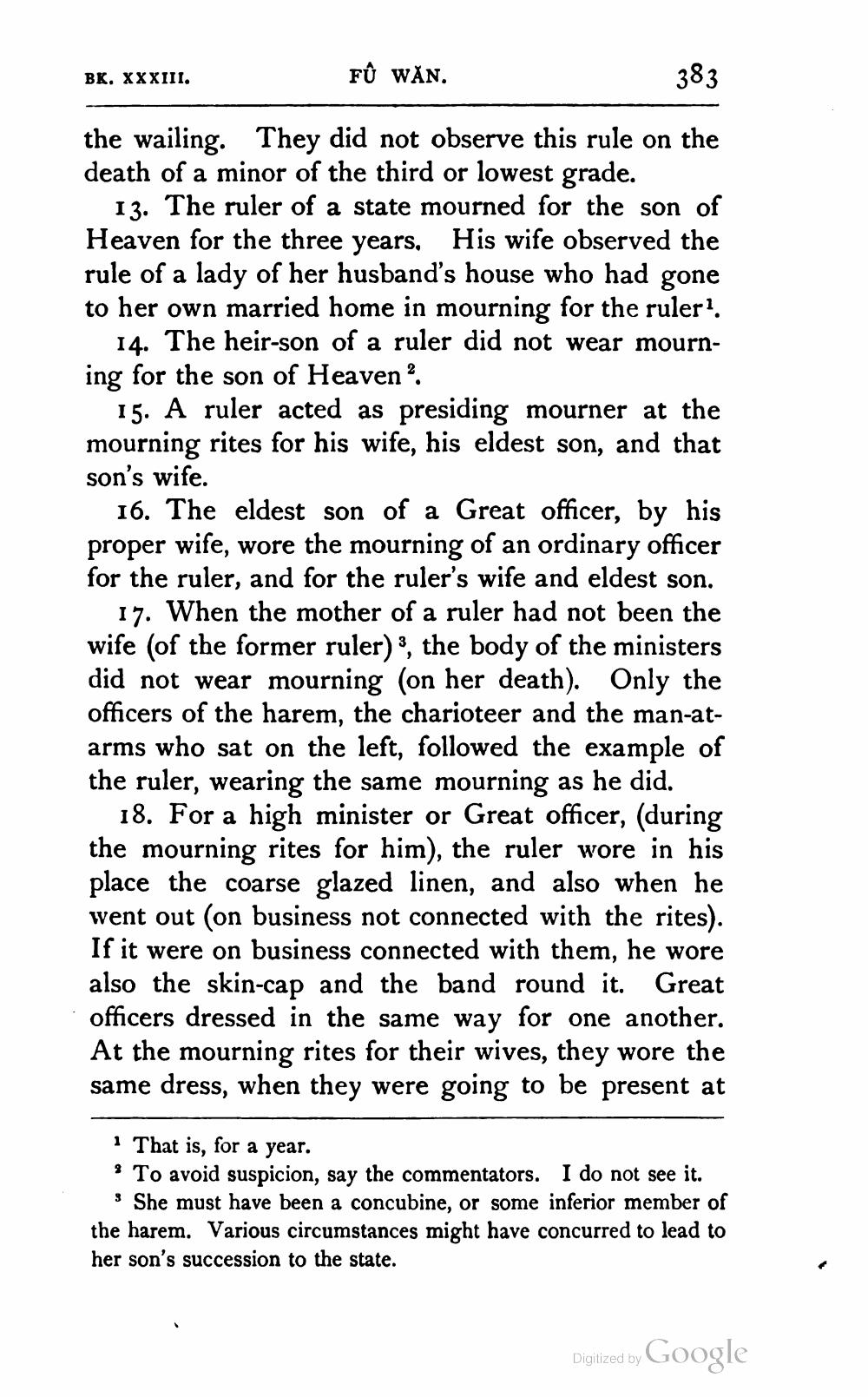________________
BK. XXXIII.
FÛ WĂN.
383
the wailing. They did not observe this rule on the death of a minor of the third or lowest grade.
13. The ruler of a state mourned for the son of Heaven for the three years. His wife observed the rule of a lady of her husband's house who had gone to her own married home in mourning for the ruler1.
14. The heir-son of a ruler did not wear mourning for the son of Heaven?
15. A ruler acted as presiding mourner at the mourning rites for his wife, his eldest son, and that son's wife.
16. The eldest son of a Great officer, by his proper wife, wore the mourning of an ordinary officer for the ruler, and for the ruler's wife and eldest son.
17. When the mother of a ruler had not been the wife (of the former ruler) 3, the body of the ministers did not wear mourning (on her death). Only the officers of the harem, the charioteer and the man-atarms who sat on the left, followed the example of the ruler, wearing the same mourning as he did.
18. For a high minister or Great officer, (during the mourning rites for him), the ruler wore in his place the coarse glazed linen, and also when he went out (on business not connected with the rites). If it were on business connected with them, he wore also the skin-cap and the band round it. Great officers dressed in the same way for one another. At the mourning rites for their wives, they wore the same dress, when they were going to be present at
· That is, for a year. * To avoid suspicion, say the commentators. I do not see it.
She must have been a concubine, or some inferior member of the harem. Various circumstances might have concurred to lead to her son's succession to the state.
Digitized by Google




